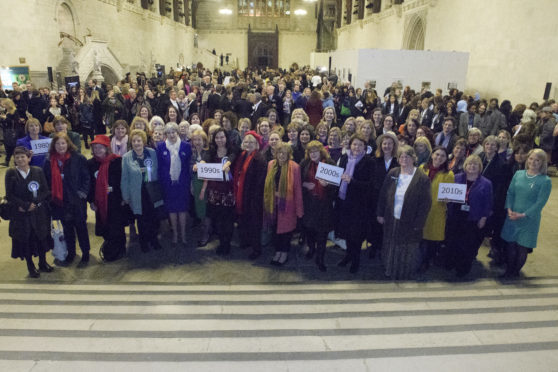One event at next month’s Dundee Women’s Festival is entitled “Only 1 in 3 councillors in Scotland are women – why?!”
Given that the organisers have used both a question mark and an exclamation mark, we can assume they think women’s representation in local government is too low and mystifyingly so.
Given that most of politics involves long meetings at inconvenient times with irritating people, we could ask: why does anyone become a councillor?!
That aside, the celebrations surrounding the centenary of the 1918 Representation Of the People Act, which gave some women the right to vote, surely begs a different question: why is the politics of equality so slow?
By the time British women got the vote, the idea was fashionable around the world. Equal suffrage was pioneered by Sweden and New Zealand and by 1918, lots of countries approved the idea. This was still more than 120 years since the key tract, A Vindication of the Rights of Women, by Mary Wollstonecraft, and centuries after women had been capable heads of state, as queens of the realm. But the elite are reluctant to give up power – the 1918 act also expanded the vote for men, but still not equally for all men.
What is strange is how the demand for equality remained lethargic. Legislation establishing equality in law did not happen until the 1970s, on the matter of pay. The Sex Discrimination and Equal Pay act was passed in 1975, which established the Equal Opportunities Commission. That legislation was widely ignored and to this day it is flaunted in countless cases of pay discrimination – which is to say, 43 years after the act, its work is still not done. I cannot think of an equivalent elsewhere in the statute book.
The puzzle is that the state has been allowed to disregard its own statutes.
Female lords and MPs gathered for a photograph this week to mark the centenary of the 1918 act. The politicians in that photograph are also the ones who have allowed equality to move so slowly.
It would be silly to blame women alone for the torpid advance of equal rights – male politicians are equally culpable. Yet you would expect the women to be the more motivated because they would naturally be the more angry at the injustice.
The women who sit in the Commons allow sanitary products to be taxed as a luxury, an anomaly that shouldn’t stand another day. Yet they have not banded together and demanded an end to this injustice. The women who sit in the Lords have governed public and private bodies which tolerated unequal pay structures. Was it just a fight too far to demand action back in the 1970s or the 1980s or in any year since?
A perfect illustration of this cultural lethargy is in the pay disputes in Scottish local government. One answer to why there are only one in three women councillors might be that women got the idea they’d be paid less if they worked for the council.
A reasonable assumption, as female employees were paid less, over a long time, and have been fighting for decades for this to be rectified.
This means that of all the strong female politicians in Labour’s ranks over the decades, and the women who have served in 20 years of devolution, none of them championed the cause of women in local government. Why not?
It is baffling in this era, when pay injustice and sexual harassment are apparently the causes celebre, that these matters have gone on so long.
Men were negligent, too, the Labour party hierarchy must have known that female workers were being short-changed in the public sector of Scotland, much of which they ran, but nobody did anything – not Donald Dewar or Gordon Brown or anyone else. During that time, I do not recall the SNP campaigning on this, either.
One of the great unwritten political histories is the story of how a Britain getting ever richer and more socially sophisticated simply ignored, or couldn’t be bothered with, so many stories of discrimination against women.
It is connected to the strange way women have fallen in and out of love with their own emancipation – how the powerful views of Germaine Greer and Simone De Beauvoir in the 1970s could morph into the highly sexualised, often degrading, imagery of women in the early 21st Century. Even the word feminism has come in and out of fashion – now championed by pop stars but not so long ago an embarrassing relic of a bygone political age.
Is it just that non-violent revolutions are slow – slow to win the vote, slow to change society? Perhaps, but in which case we have to hope this generation of women and men can finally say, honestly, that the fight is won.
